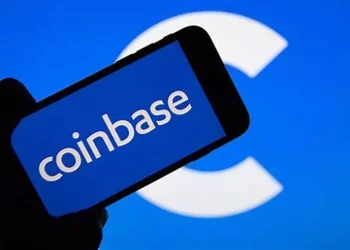Binance, the world’s largest cryptocurrency exchange, is facing criticism for its decision to donate its in-house cryptocurrency, BNB tokens, to Moroccan customers affected by the recent deadly earthquake. Humanitarian relief experts have raised concerns, characterizing the move as a calculated PR stunt aimed at improving the exchange’s image.
Binance announced this week that it would provide up to $100 worth of BNB tokens to approximately 70,000 existing customers, totaling a contribution of up to $3 million. However, aid experts have questioned the practicality of donating tokens instead of readily usable cash or essential items like food and blankets, which survivors urgently require. Some also criticize Binance for extending aid exclusively to its existing customers rather than reaching out to all victims of the disaster.
Iain Overton, the Executive Director of the charity Action on Armed Violence, expressed skepticism about the initiative, viewing it as a marketing ploy designed to showcase the company in a positive light. He remarked, “Those affected by the catastrophe will never hear of it, and those unaffected by the catastrophe may come away with a positive notion of [Binance’s] brand. It’s cynical at best.”
Binance’s donation is part of a broader trend among cryptocurrency firms to use digital assets for humanitarian aid efforts in the wake of natural disasters or conflicts, such as Russia’s invasion of Ukraine and earlier earthquakes in Turkey and Syria. However, such efforts have faced criticism for being an ineffective means of providing immediate assistance to those in need.
Overton emphasized the importance of familiarity in post-disaster environments, stating that people require basic necessities like food, shelter, medical aid, and space to grieve, rather than digital innovations or financial tools. He argued that cryptocurrency is not what people in such situations are seeking.
A spokesperson for the International Federation of Red Cross and Red Crescent Societies stressed that aid must come in forms that “help [people] meet their basic needs immediately.” They questioned the utility of crypto in delivering essential supplies like food and clean water during emergencies.
Binance’s charitable arm defended its choice, highlighting that crypto transfers offer fast, low-cost, borderless, and transparent transactions, which can be converted into local fiat currencies as needed. Additionally, the exchange pledged to donate further funds raised from the public to local charities.
The earthquake in Morocco, which struck last Friday, has tragically claimed the lives of at least 2,800 people and led to the destruction of over 30,000 homes. The government has appealed for blood donations, and the military has been mobilized to assist in aid delivery and rescue operations.
Binance’s distribution of funds is contingent on a proof of address mechanism, requiring completion by September 9 to determine eligibility. Users who met this deadline are entitled to $100 worth of Binance’s BNB tokens. Those who complete the process by the end of the month will receive $25 worth, and “active transacting” users living outside the affected area in Morocco will receive $10 worth.
Binance CEO Changpeng Zhao expressed hope that the donations would provide support to those affected, urging Moroccan users to pass on the funds to those in greater need. However, critics have noted that BNB tokens are not legal tender, and recipients will need to convert them into local currency before accessing funds through banks or ATMs.
While Binance’s charitable gesture aims to make a positive impact, concerns remain about the practicality and transparency of distributing cryptocurrency in humanitarian crises. Experts argue that cryptocurrencies are challenging to convert into usable cash and may expose vulnerable individuals to financial risks due to their volatility.
Binance, already embroiled in legal disputes with US regulators over allegations of illegal access to US customers and securities law violations, is facing additional scrutiny for its relief efforts in the aftermath of the Morocco earthquake. The exchange previously expressed disappointment over these legal challenges, describing them as “unexpected and disappointing” while labeling a separate lawsuit by the Securities and Exchange Commission as “baseless.”
















